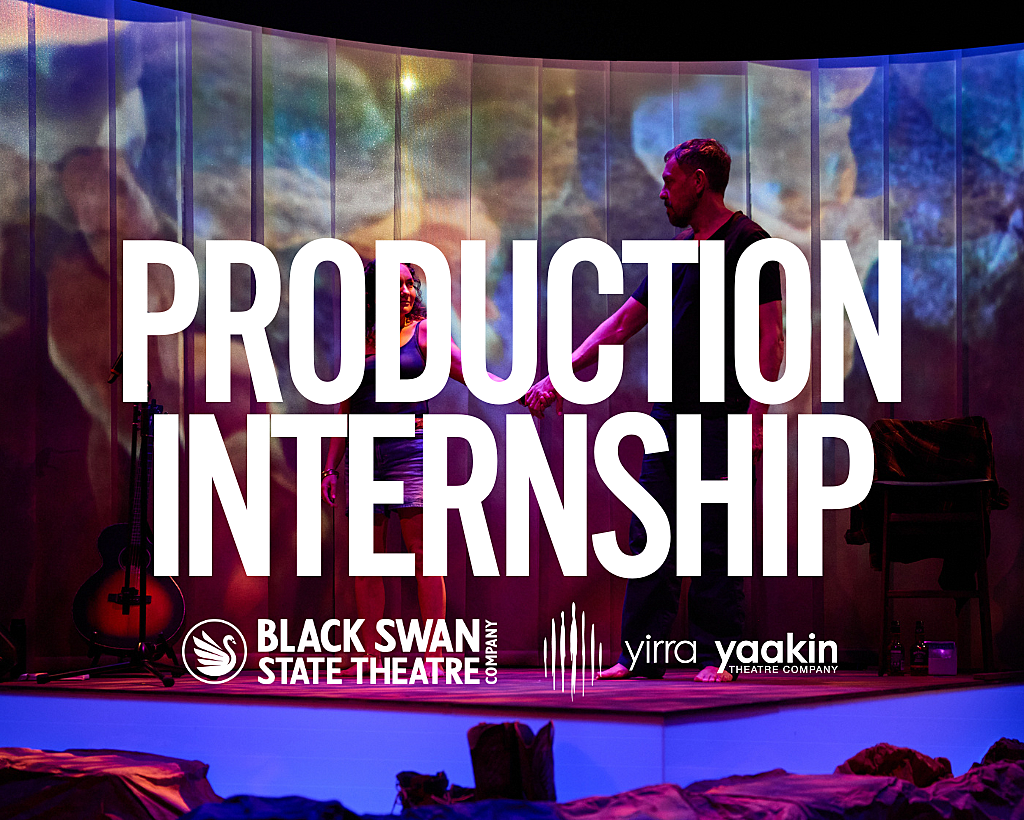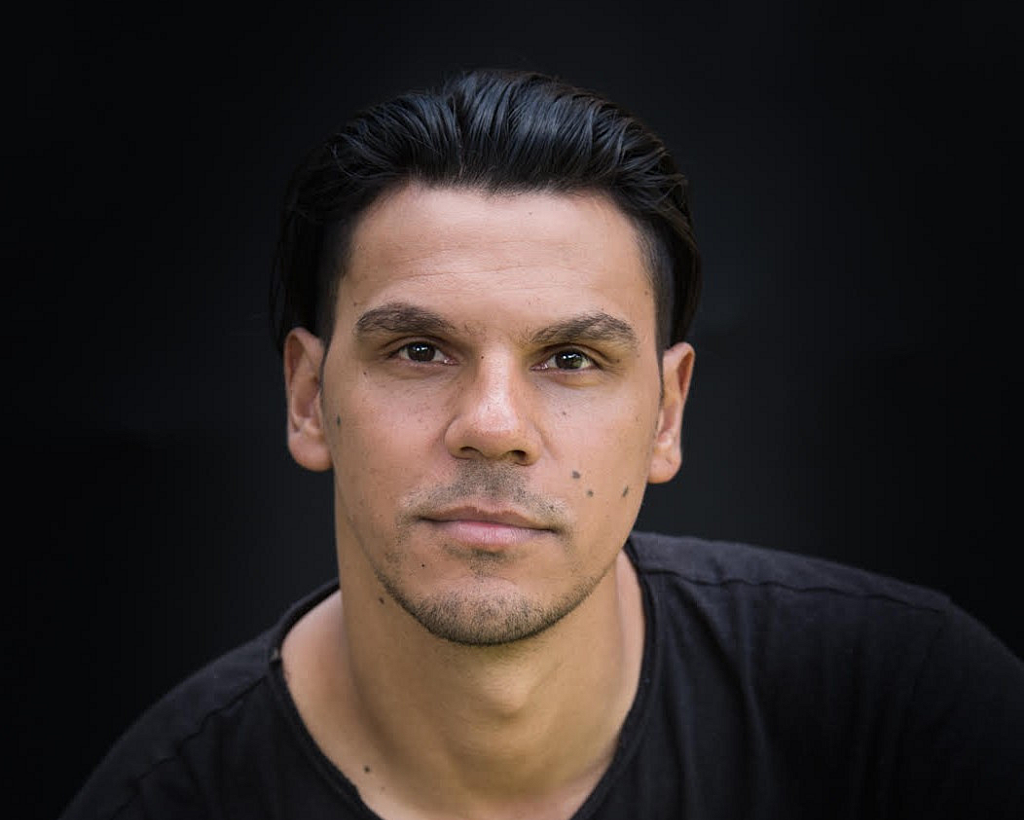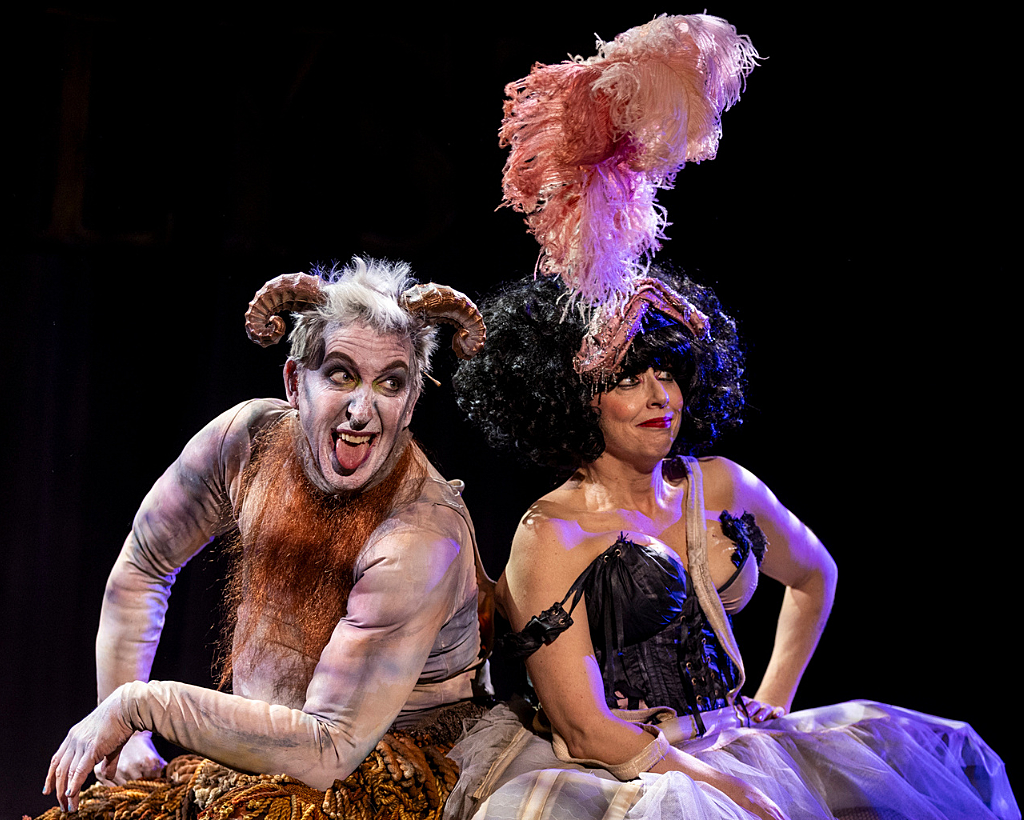Q&A "A Nose By Any Other Name" With Virginia Gay
While locked down in 2020, actor Virginia Gay wrote the human connection she was yearning for in an adaptation of Cyrano de Bergerac that transforms the title role into a psychological exploration of self-doubt, internalised hate and queer bodies. And, desperate for a happy ending in real life, she wrote one into the play while also filling it with music and laughter and a powerful sense of connection and community – between the actors and the audience.
The script is a very self-aware celebration of live theatre, and live audiences, that taps into something deep that people have been missing. It’s a powerful reaction to 2020, from a creative point of view.
I love that that’s how it reads for you because that’s exactly what it felt like to me. I pitched it to [director] Sarah Goodes just before the apocalypse started. And during those first couple of weeks, as the whole world was changing, we continued talking about it and I could see how even more resonant it was becoming.
Can you elaborate?
I was in Los Angeles for the first six months of the apocalypse, and Melbourne was doing its very intensive lockdown. In both places you had to keep yourself isolated as much as possible. I’d also just had my heart broken by a woman in America so I was existing in this extraordinary suspended state of hyper-longing: I had a broken heart and to connect with people during that time seemed so important and yet it was also the thing that was most rife with danger.
As I was writing Cyrano, I realised that this is the embodiment of what Cyrano says: ‘connecting with me will somehow destroy you; there’s something rancid about me, so you can’t touch me. But I want, I need to connect. I also want you to be happy. How can I facilitate this but not corrode you with my love.’
As I got months into having not touched another living human being, a sentence came to me. This sentence, which I had up on my wall, was: how do you reach for something that you know you cannot touch? That sense of suspension is what the entirety of 2020 felt like; that’s what lockdown felt like, that’s what the relationship between Cyrano and Roxanne felt like. So I talked a lot with Sarah about how we evoke that feeling of hyper- longing and the recognition that connection is the most important thing but, for a series of reasons, cannot be acted upon.
'When there’s no nose, what you see so transparently is someone who has decided that they are unworthy of love. You see their self-doubt, and their self-hate.’
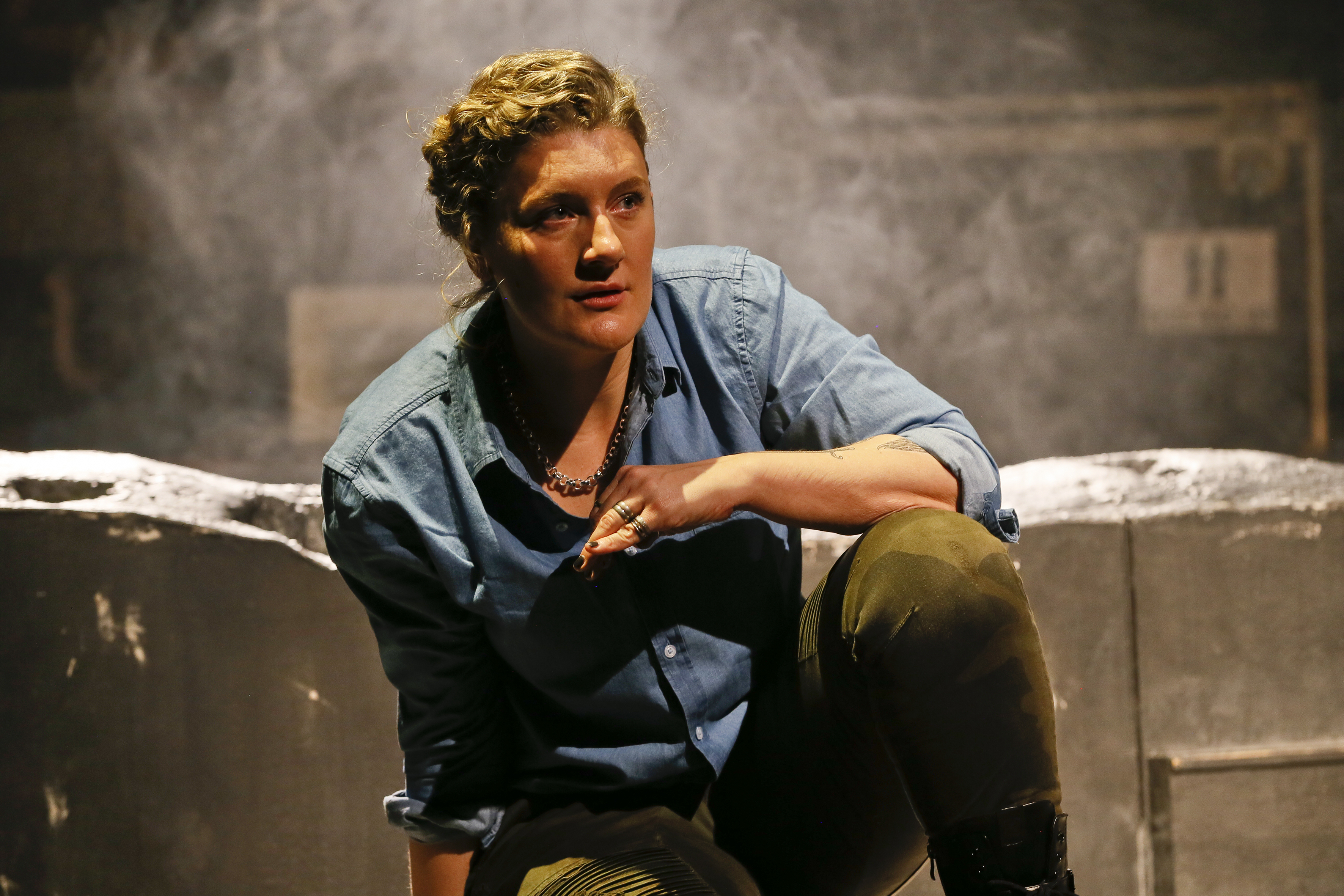
You mentioned that you pitched the play just before the pandemic began, so it wasn’t the initial inspiration. Can you elaborate on what was?
Number one is that I saw James McAvoy’s Cyrano. It was the last piece of theatre that I saw in England before the apocalypse started. He did it without a nose – and we’re also doing it without a nose – and when there’s no nose, what you see so transparently is someone who has decided that they are unworthy of love. You see their self-doubt, and their self-hate.
So I got about a scene and a half in and I realised I had to play this role. This is a story that is so familiar to my teenage self, to my early 20s, when I thought I was saving people from the horror. But I also remember thinking that this is the story of a queer body; this is the story of a body that at some point has been made to feel and think ‘there’s something about me that is not good enough for you.’ It’s that idea of there being something about these bodies that somebody has told us won’t satisfy you, and we’ve internalised that language.
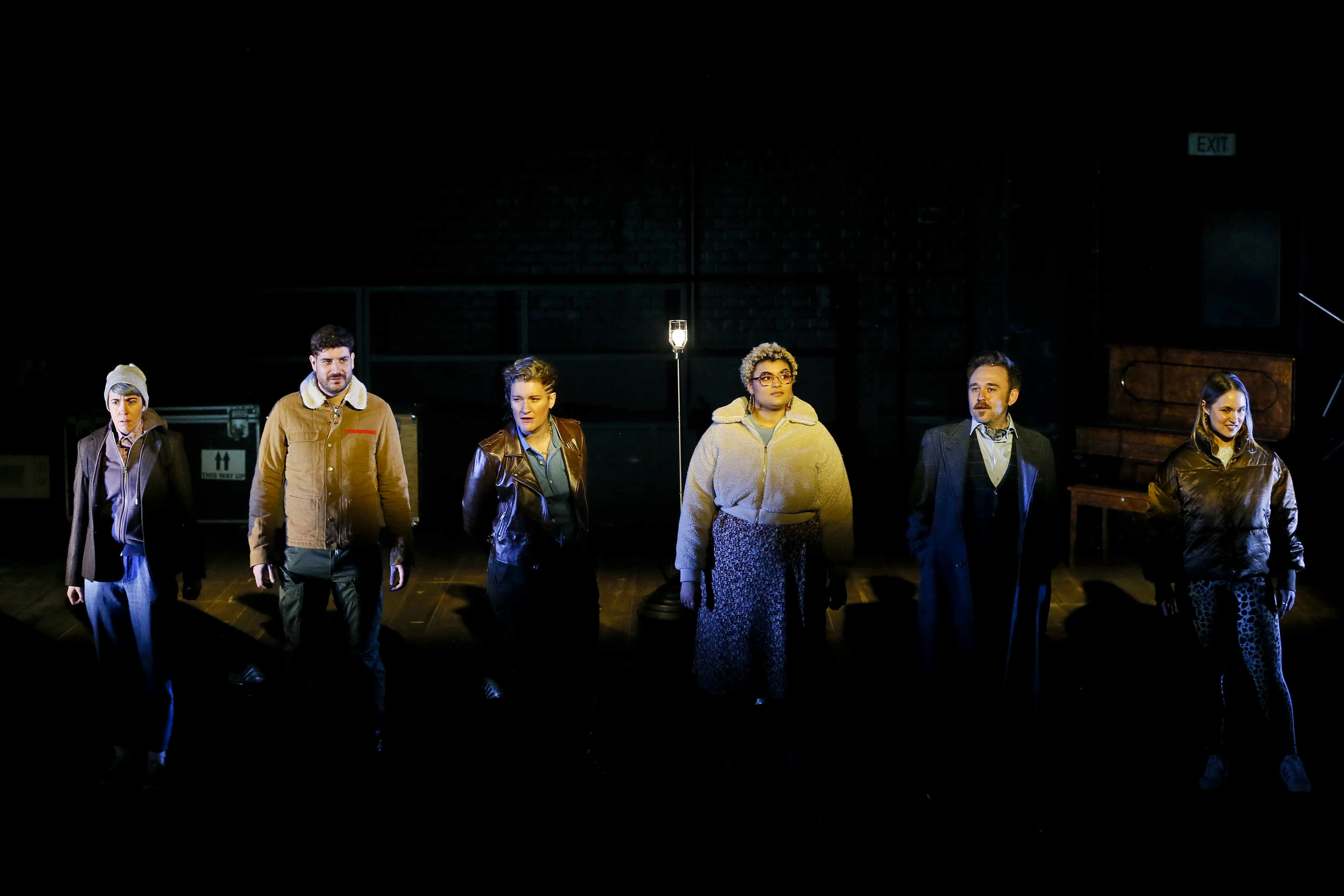
It’s a play that has a strong tradition of adaptation and modernisation. Where does your version fit?
One of the things that I’m really interested in – and I think it’s a really interesting question within mainstage theatre companies particularly – is why we keep telling the old stories. And what responsibility do we have, if we are going to tell the old stories? We tell them because they’re classics and because their sense of familiarity is calming. And I think that following such a time of chaos, that feeling of familiarity is even more comforting. But they’re also a product of a different time, with different social mores. And if you keep telling the old stories unexamined then you’re not helping to advance our cause.
The stories that we tell have enormous importance. My responsibility as a writer is to do what I call ‘how you hide your vegetables’. It’s about how you try to change the world but through a corker of an evening so people don’t feel lectured, so that they feel like the change is blossoming out from within rather than being fed to them, and so that they go home thinking ‘that was such an indulgent and lovely and ridiculous dinner’ and then a couple of days later they go ‘wait a minute, there was zucchini in that!’ I don’t think entertainment and fighting for something more are mutually exclusive; if you can do them both at once, then that is the sweet spot.
Anyway as I got out of interval of the McAvoy production, all I could think was that this was the perfect role for me. This asks everything of me that I can deliver as a performer. But it ends with terrible war and everybody dying. Roxanne, in various productions, either becomes a nun or a whore. And of course Cyrano dies moments after professing his love, confirming that assumption that ‘this love is not for you.’
I left afterwards and called Sarah and said: ‘I don’t know how we can do this play, because it contributes to the “kill your gays” trope and I don’t ever want to be a part of a narrative that says a queer love is impossible, or that queer bodies are expendable or sacrificial as standard, unexamined narrative tropes.’ And she said, with such casualness, ‘Well it’s out of copyright. You should write your own.’ Just like that.
It’s not your first time behind the keyboard. Do you see writing continuing to be part of your creative future?
I have had such joy writing this. I’m very early in my writing career, but I think it’s the first time that I have written for my own pleasure. I remember the feeling of giving a draft to actors and then seeing them do their alchemy and being able to sit back and go: that’s incredible! Could I do more of that?
It made me love actors in the most extraordinary way because they took this half-shapen thing and made it magic, and broke my heart right there in a rehearsal room, and sometimes even through the horror medium of Zoom. So it’s made me completely fall in love with actors again, and I’m sure that once I get back on stage I’ll be like: I’m never leaving it. But yeah, I want to write a lot more. I love that idea of making something and then giving it to someone else and seeing the magic that they do with it. I think it’s extraordinary.
'The stories that we tell have enormous importance ... I don’t think entertainment and fighting for something more are mutually exclusive; if you can do them both at once, then that is the sweet spot.'
This is an excerpt by Melanie Sheridan. Read the full interview at mtc.com.au
Cyrano is showing at The Heath Ledger Theatre from 17 February - 5 March 2023.
